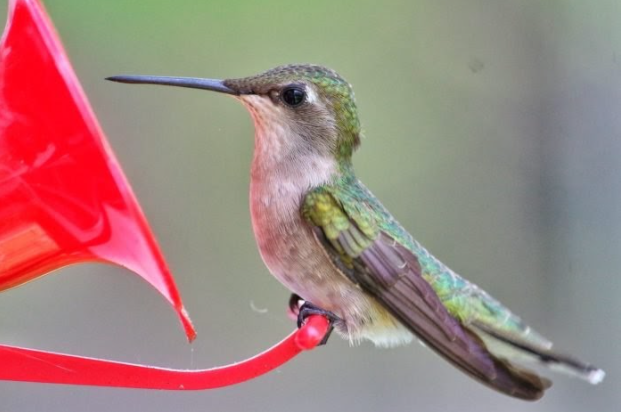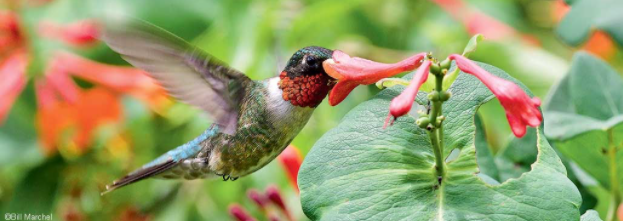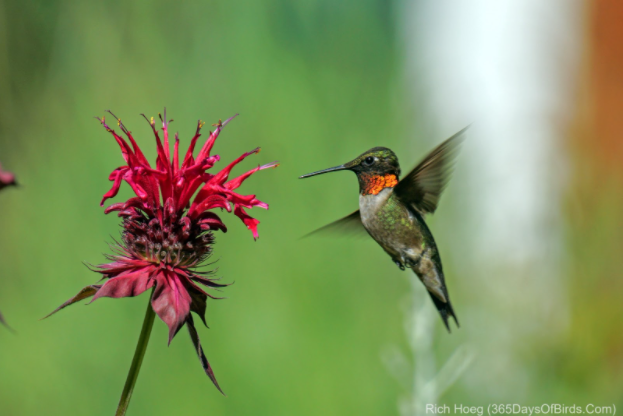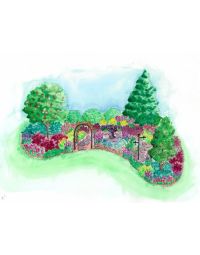Ruby-throated Hummingbirds have the widest nesting range of the more than 300 species. They all live in the Western Hemisphere. Spring migration patterns bring them to the Twin Cities area on or around May 1st and throughout the northern part of the state by May 10th.

Mark Moscel/Flickr - female Ruby-throated hummingbird
Ruby-throated Hummingbirds live in open woodlands, forest edges, meadows, grasslands, and now, even in parks, gardens, and backyards. They prefer to nest in mature trees and like to be near flowering plants that supply nectar and create a space for small insects, both of which make up its diet. This little jewel has adapted well to human development, but only if there is adequate shelter, space and food. They are found more frequently in and around hardwood forests than among pines when breeding.

Nectar from Honeysuckle vine
While hummingbirds make use of the sugar water from your feeders for a quick source of energy, they primarily rely on nectar from plants, where they may also be gobbling up tiny insects and spiders, both excellent sources of protein. Create a natural habitat with a hummingbird garden using plants that naturally attract them and provide food and shelter.

Feeding on monarda
Feeders
Purchase a nectar feeder specifically designed for hummingbirds like the Glory hummingbird feeder or Jubilee feeder and use it with a nectar mix. Keep your feeders clean with a nectar feeder cleanser for their safety and to avoid gunky build-up. Hummingbird feeders are meant to hang. Place them in a location where it's convenient for you to refill as well as view your new guests. They prefer to be out of the wind and in the shade.
Plants
Hummingbirds are attracted to plants with red and orange flowers. They are also specially adapted to feed from plants that have tubular or trumpet shaped flowers.
Perennials
- Aquilegia (Columbine)
- Buddleia (Butterfly Bush)
- Hemerocallis (Daylily)
- Heuchera (Coral Bells)
- Lobelia (Cardinal Flower)
- Lychnis (Maltese Cross)
- Monarda (Bee Balm)
- Penstemon (Beardtongue)
- Phlox paniculata (Garden Phlox)
Perennial Vines
Trees
Annuals
The experts at Gertens are always available to answer your questions!


